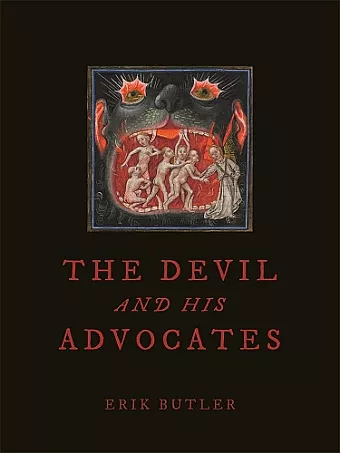The Devil and His Advocates
Format:Hardback
Publisher:Reaktion Books
Published:15th Mar '21
Should be back in stock very soon

Satan is not God’s enemy in the Bible, and he’s not always bad – much less evil. Through the lens of the Old and New Testaments, Erik Butler explores the Devil through literature, theology, visual art, and music from antiquity up to the present, discussing canonical authors (Dante, Milton, Goethe) and a wealth of lesser-known sources. Since his first appearance in the Book of Job, Satan has pursued a single objective: to test human beings, whose moral worth and piety leave plenty of room for doubt. Satan can be manipulative, but at worst he facilitates what mortals are inclined to do, anyway. ‘The Devil made me do it’ does not hold up in the court of cosmic law. With wit and surprising examples, this book explains why.
"Butler, a researcher at the Yale School of Drama, explores the character of the devil in literature, theology, visual art, and music from antiquity up to the present, discussing canonical authors such as Dante, Goethe, and Milton." * Publishers Weekly *
"Butler's book is a scholarly tour-de-force citing the widest range of thinkers. From St Augustine to Nietzsche, Freud, and Foucault. And from the world of literature and the arts come Byron, Shelley, Mann, Blake , and Mozart; even Hannibal Lecter gets a mention. Notwithstanding the heavy duty material, the book remains a hellish good read." * Fortean Times *
"In this remarkable and thought-provoking book, Butler demonstrates that far from being the goat-horned, cloven-hoofed, and barbed-tail demon of popular culture, the Devil has in fact been constantly on the move in Christian thinking. . . . Like Virgil leading Dante, Butler steers the reader through the labyrinthine intricacies of early Christian philosophy, the writings of Luther and Milton, and the profane excesses of the French Decadence. . . . Brimful with erudite and recherché learning, and written with a compelling combination of scintillating intelligence and apocalyptic verve, The Devil and His Advocates presents a grand sweep of Western intellectual history that amounts to an alternative history of evil in the Christian world. In Butler, the Devil has found his most eloquent, sophisticated, and measured advocate to date." -- Nick Groom, Professor of Literature in English, University of Macau
“In this devilishly clever and fiendishly erudite tour de force, Butler tracks the peregrinations of Satan and figurations of the Satanic across millennia and genres. . . . Butler masterfully weaves history, theology, folklore, music, philosophy, literary criticism, and more into a dazzling account of the Devil's many functions in Western thought and culture. The result is the perfect genealogical demonology for our present moment—an achievement that is at once accessible, provocative, and profound.” -- Patrick Blanchfield, author of "Gunpower: The Structure of American Violence"
ISBN: 9781789143737
Dimensions: unknown
Weight: unknown
272 pages